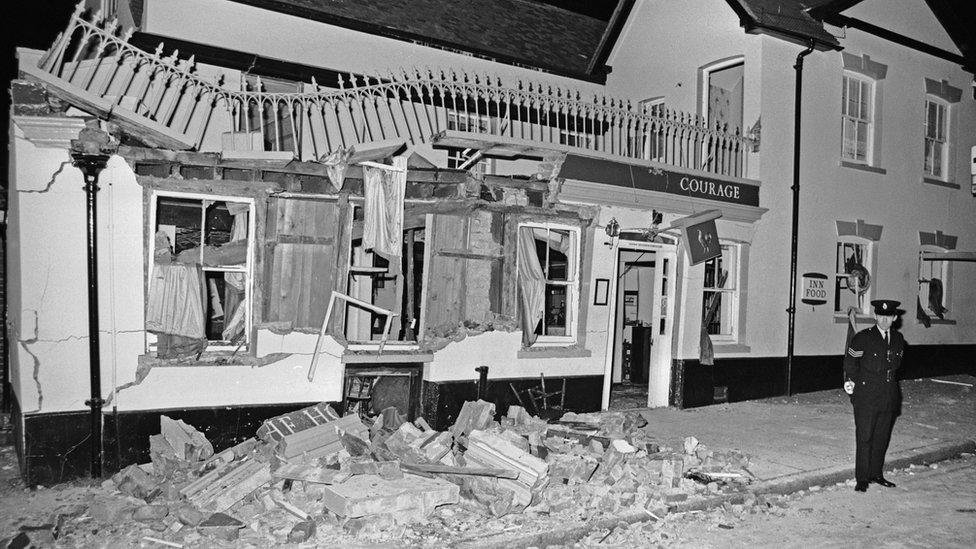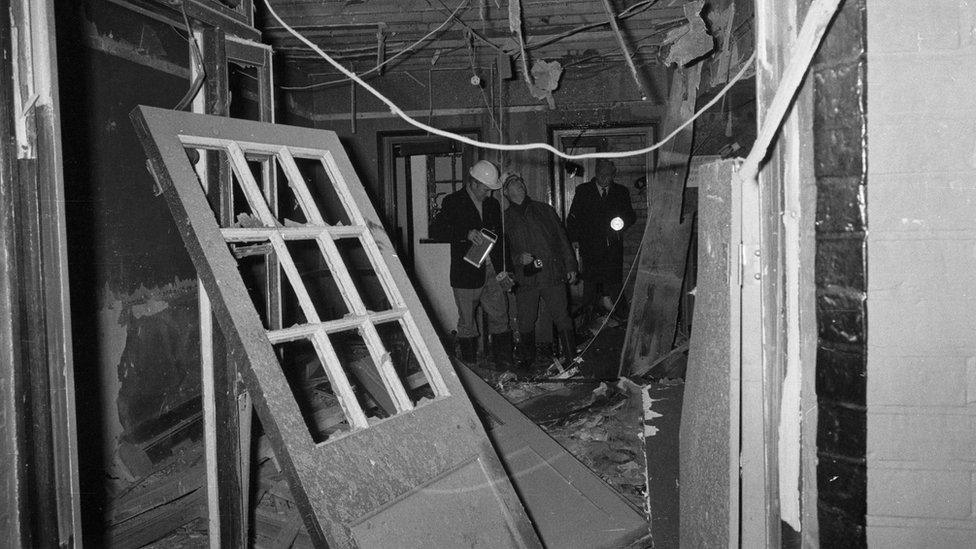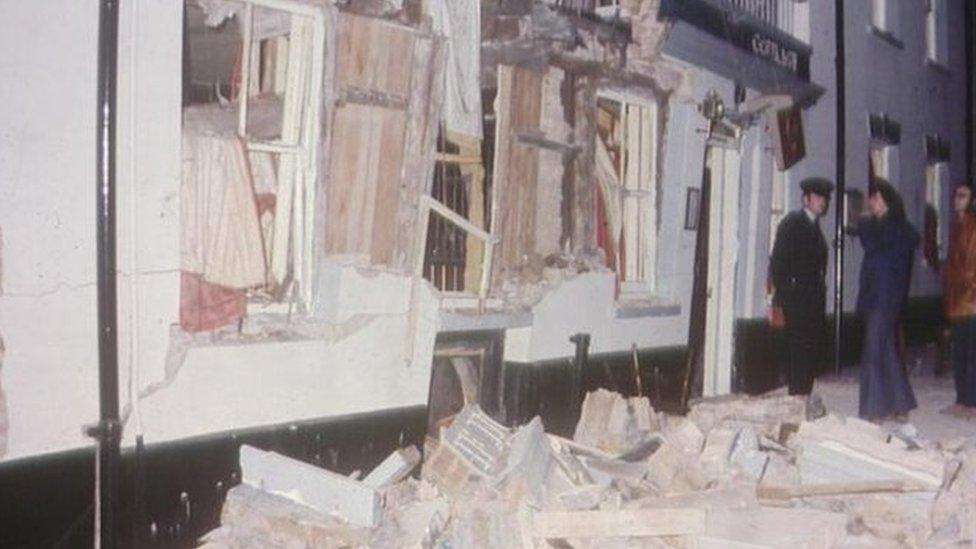Guildford IRA pub bomb inquest will not look at perpetrators
- Published

The IRA blew up two pubs in Guildford on 5 October 1974
An inquest into the deaths of five people in IRA pub bombs in Guildford in 1974 will not look at who planted the explosives, a coroner has ruled.
Coroner Richard Travers ruled the inquest should look at the timing of one of the explosions, the location of the bomb and how the victims died.
Calls had come from lawyers and the family of Ann Hamilton, one of the four soldiers who died, for a wider inquiry.
Mr Travers also ruled the full hearing would take place without a jury.
He said he could see no good reason to empanel a jury.
In a short submission KRW Law requested a jury on behalf of the family of victim Ann Hamilton but "didn't give a specific reason" for requesting one, Mr Travers said.
KRW Law representatives were not present at the pre-inquest review, after the families' request for legal aid was refused.

Caroline Slater, 18, Ann Hamilton, 19, William Forsyth, 18, John Hunter, 17, and plasterer Paul Craig, 21, died in the first explosion at the Horse and Groom
Barry O'Donnell from KRW Law said: "It's imperative that the family have legal representation in order to interrogate the disclosure which in turn determines the scope.
"Without independent interrogation of the scope the state has a free run at setting the scope, denying the family independent representation in an important case where soldiers and a civilian were murdered."
He said KRW Law had done everything it could to obtain funding and were very disappointed.
Two bombs exploded at the Horse and Groom pub and the Seven Stars pub on 5 October 1974, killing five and injuring 65.
The five who died had been in the Horse and Groom, and it is the bombing of that pub that will be the focus of the inquest.
Eleven people - the Guildford Four and Maguire Seven - were wrongly-convicted after the attacks in what became one of Britain's biggest miscarriages of justice.

Wrongly-convicted Gerry Conlon, Paddy Armstrong, Paul Hill and Carole Richardson served 15 years in jail
Ms Hamilton previously asked the inquest to broaden its investigation to include discrepancies in press coverage at the time, the timings of the bombings, barracks security, and the wrongful convictions of innocent people.
Mr Travers said the inquest would look at who died and how, when and where they died, but it would not look at who carried out the attacks, the conduct of the original police investigation or prosecution, or the wider IRA bombing campaign.
'Missed opportunity'
Mr O'Donnell criticised the scope of the inquest and said the case was a "mirror image of the Birmingham pub bombs" with explosions at two pubs on one night.
Speaking after the pre-inquest review on Friday, former Guildford Four lawyer Alastair Logan called it a "missed opportunity".
He added: "[The inquest is] an awful lot of work that does nothing to get to the bottom of how four young people spent 15 years in prison for something they did not do."
The coroner decided against engaging Article 2 - which is an investigation into whether the state failed to protect lives.
Mr Travers said it would be kept under review, adding: "I will continue to consider the issue of Article 2. The scope of the inquest is set. Whether or not Article 2 is engaged would not have a real impact on the breadth of the inquest I intend to make."
The next pre-inquest review will be held on March 25.

Follow BBC South East on Facebook, external, on Twitter, external, and on Instagram, external. Send your story ideas to southeasttoday@bbc.co.uk.
Related topics
- Published13 January 2022

- Published8 July 2021

- Published5 October 2021

- Published19 May 2020
